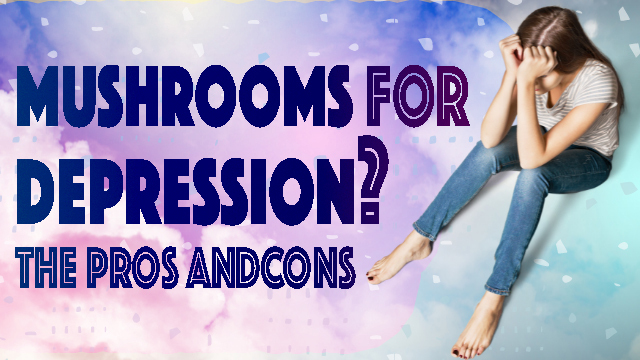A team of scientists who are studying where mushrooms can be used to improve or ease the lives of patients suggests treating severe forms of depression with hallucinogenic mushrooms. And they have every reason to make such a very bold statement. Scientists have long been studying psilocybin, a substance found in magic mushrooms. It turned out that it copes with its task no worse than antidepressants.
Here you can find the answer to the question that arises, namely what are magic mushrooms for depression?
How Can a Mushroom Help Mental Health?
Mental disorders such as depression are characterized by excessive self-focus, recurring negative thoughts and feelings about oneself, and impaired social behavior. So how can we help a person get rid of the focus on negative experiences?
Considering in more detail about mushrooms for depression, the fact is that some drugs contribute to a more acute perception of reality, while the magic mushrooms fight depression and anxiety.
The psilocybin contained in the mushrooms changes perception and helps to achieve a state of self-transcendence, in which the boundaries of personality gradually disappear, and the feeling of happiness and belonging to other people and the whole world grows.
What Does Treatment Look Like?
To get to the topic of how treatment and mushrooms for depression dosage works, we can start with the patient first being given a microdosing of mushrooms for depression, also called a test dose. This is up to 10 ml, and then gradually under the doctor’s supervision, because each organism reacts differently, the drug is either increased or decreased.
The Pros of Using Magic Mushrooms for Depression
Various psychometric and neurocognitive tests have been conducted which have shown that the effects of psilocybin increase positively and counteract the appearance of negative aspects of the psychedelic experience. Specifically, potential negative reactions to psilocybin are reduced by learning to manage attention and perceive feelings without judgment along with meditation and psychedelic mushrooms for depression-based mindfulness. Psilocybin has increased the depth and intensity of the positive experience of self-transcendence, without negative reactions such as fear or disorientation.
The effect of this technique persists even in the long term. More positive psychosocial behavior, better self-perception, and more empathy were observed than those who took the placebo.
Magnetic resonance imaging results also showed that the experience of self-transcendence alters neural connections in the brain over the long term, and in the very areas of the brain that are activated when we think about ourselves. Positive responses to psilocybin are facilitated by, among other things, openness and optimism.
The Cons of Using Magic Mushrooms for Depression
The other side of shrooms as a treatment for depression, namely the negative, included side effects. These include anxiety at the onset of the drug, confusion, nausea, and headache. And unfortunately, after each ingestion and intoxication of the body, there are changes in the mediators of the brain, at first little noticeable, but tend to accumulate. That is, even having shown a positive result, over time, if we do not stop treatment, there may be very bad consequences.
Conclusion
The unusual project is still too new and in the early stages of research, so there is no talk about the popularization of the unusual method of treatment of prolonged depression and its severe forms yet. The authors of the project believe that their discovery will necessarily be followed by larger-scale studies, in which the title of “most effective” vie with psilocybin and several types of potent antidepressants, but it will happen in the next couple of years.
